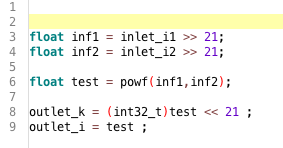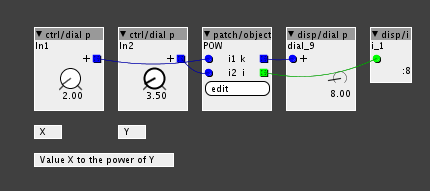Hey!
Have been looking a bit into building a number sequencer, where I can enter a sned a variable in, like 1,2,3,4,5,6 and the result should be something like this:
1 1,2 1,2,3 1,2,3,4 1,2,3,4,5, 1,2,3,4,5,6, 1,2,3,4,5,6,7 1,2,3,4,5,6,7,8
And so on..... Every sequence is as long as the the amount of numbers in the sequence.
I tried all kinds of trick using modulo but I am out of ideas.
Everytime it has run through the sum of the numbers in the sequence, it adds another number to the sequence. I have googled it a bit but have not found anything that would work where I put in a variable in one end and i get the selected number of the above list out. I did try something using an array, but well, it very quickly sums up to a very large array, so it would be nice to be able to do it with a formula instead.
Does any one have suggestions to do the above?
Thanks!




